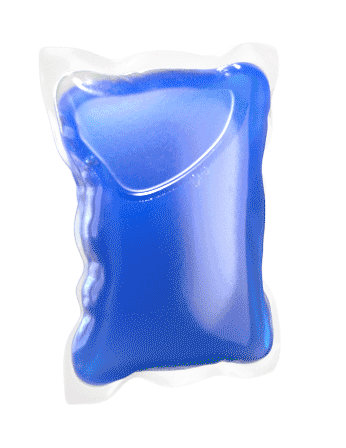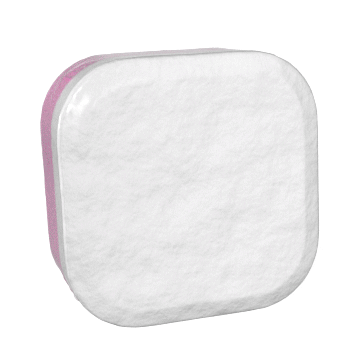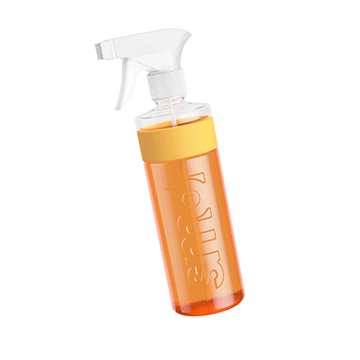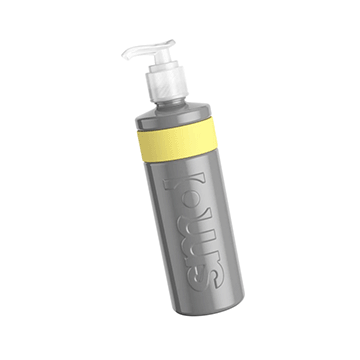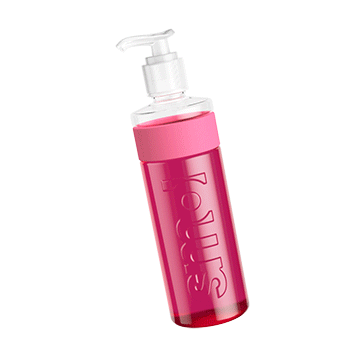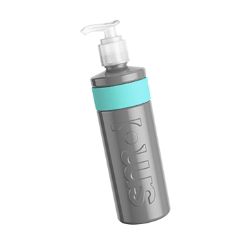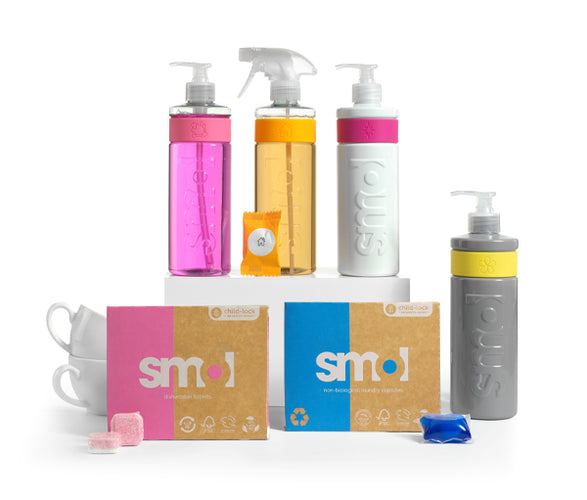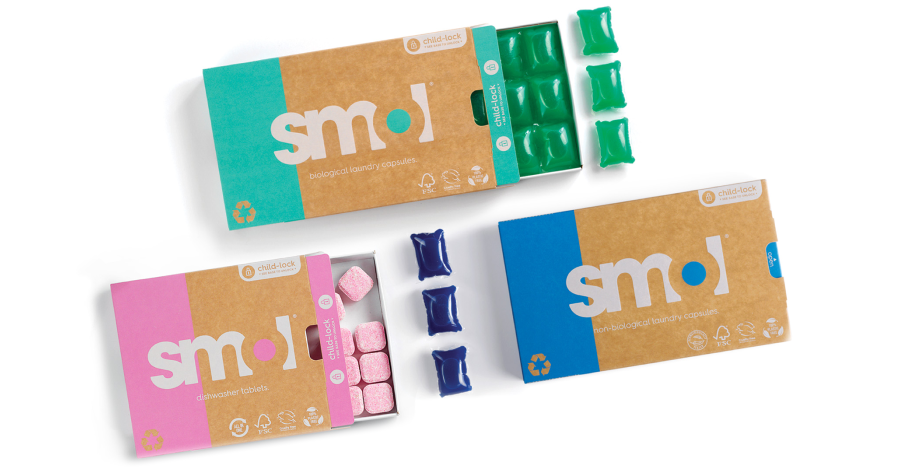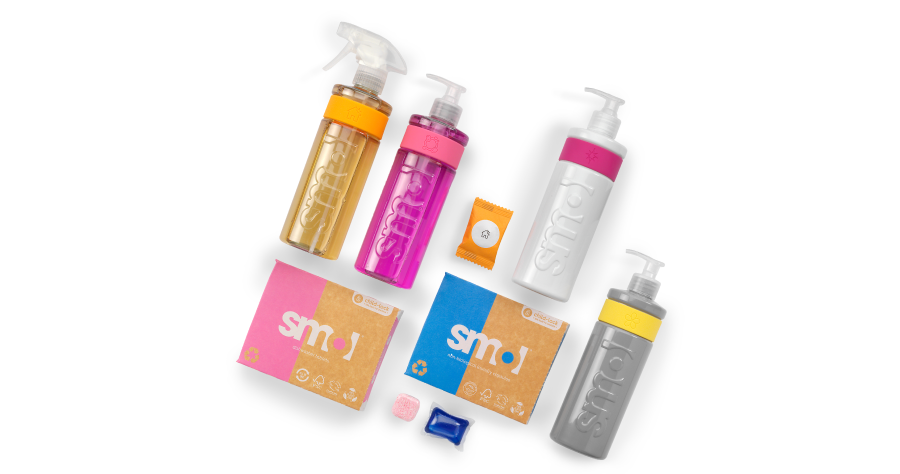
Powder, liquid, capsules or an ecoegg?
With so many detergents to choose from nowadays it’s no wonder many of us aren’t completely sure which type we should be using to best suit the needs of our dirty laundry. Some of us stick doggedly to one type, whereas others believe in different products for different laundry loads. We thought it was worth taking a look at the ups and downs of detergent type so you no longer need to wonder what sort will suit you best.
Let's start with powder...
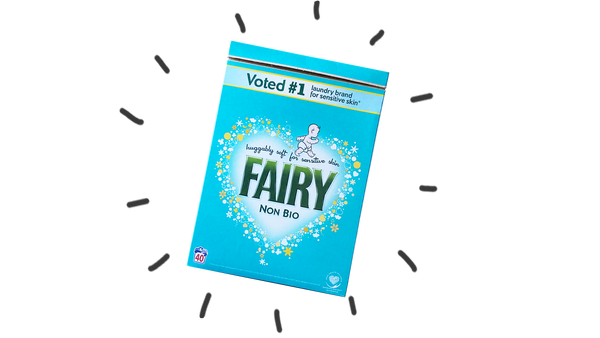
what’s good?
- Cheap and cheerful. Dose for dose, powder is lighter than big bottles of liquid so transporting it costs less; it also uses fewer active ingredients so is cheaper to make.
- You can use as little or as much as you wish depending on your laundry load.
- Because it uses bleaching agents it does well at keeping whites bright. The bleach also prevents bacterial growth in the warm, damp pipework, stopping any musty smells.
- Its cardboard packaging is more sustainable than the plastic bottles used for liquid (however, many are laminated in plastic - see below in the what’s bad list).
- Powder has a higher pH than liquids which helps with really heavy stains so can be good for bedding, sports clothes or work uniforms that get really dirty.
what’s bad?
- Undissolved clumps of powder in drains and pipes are a leading cause of machine breakdown. The clumps turn into hard residue that blocks the drain pump of your machine.
- Powder can clog your detergent drawer giving you one more cleaning job!
- Some powders struggle to dissolve in colder washes which can leave residue on your laundry. This is frustrating if your fabrics must be washed at cooler temperatures.
- Powder should be kept dry - if it's damp it will clump making it difficult to use and harder to wash through your detergent drawer (and harder to dissolve in the water).
- To combat damp many cardboard powder boxes are laminated with plastic. If these end up in landfill they deposit microplastic residue as they decompose which can migrate into soils and waterways.
- If you use too much powder in your wash it can ruin the look and feel of your clothes as the excess sticks to the fibres. It can get to a point where it’s visible and leaves a stain.
- Its bleaching agents can fade dark coloured clothing and colours can lose their vibrancy.
- Powder boxes are bulky to store which is a problem if space is at a premium.
- Powder detergent has been shown to release almost 3 x more plastic microfibers from clothing during a wash than a liquid or capsule detergent.* This is due to increased friction within the wash and also the use of compounds like zeolites which don’t dissolve. Unfortunately, laundry microplastic in our oceans is a huge problem. You can read more about this worrying issue here.
What about Laundry Liquid?

Highs.
- Liquid is already dissolved so there is no chance of residue (unlike powder).
- Liquid works better in colder water than powder due because it doesn’t need to dissolve. This is great if you want to save money and energy. Read all about cool washing here.
- It can be used as a spot treatment for stains before a wash if needed, which means you may not need another product.
- Oil or grease stains see better results with a liquid because of its alcohol ethoxylates content.
- Your dose can be tailored to the size of your load which is handy if you’re only cleaning a few items. However, half loads are NOT good for the wallet or the planet as they use almost the same energy and water as washing a full load of clothes.
Lows.
- Liquid detergent is mostly water which makes it very heavy for the amount of washes in each bottle. The heavier weight (higher transport costs) and more active ingredients used, makes it more expensive than a box of powder.
- Bulky bottles of liquid can be really big and they are tricky to store under your sink.
- Large bottles pour very quickly, increasing your chance of overdosing. The measuring caps are often not marked clearly so it’s easy to use too much.
- Liquid can be messy to use and encourages black mould in your detergent drawer along with bacteria within your machine. Run a hot vinegar wash monthly to prevent this. Just 2 cups of clear vinegar on an empty hot cycle should keep your machine smelling good.
- The plastic bottles are huge and use a lot of plastic. Unfortunately they are mostly made from brand new virgin plastic each time and with only 12% of UK plastic being recycled they then head to landfill or find their way into our environment.
Let's talk Capsules...

Capsule convenience.
Of course we love a capsule here at smol and the reasons are manifold.
- One of the main advantages for smol capsules (unfortunately not other capsule brands) is the 100% plastic-free packs the capsules travel in. No more plastic or cardboard laminated in plastic!
- Capsules are pre-dosed so there is never any mess or doubt on how much you are using. The polyvinyl alcohol film encases the exact amount for the average laundry load and will dissolve in the water to release the liquid into your wash. The film then fully biodegrades into water and carbon dioxide so there’s no concern over microplastics.
- Washing with detergent pods has the same impact on plastic microfiber release as washing in water alone.* This is unlike using powder which was found to generate around 3 times as many microplastic fibres per wash as using a capsule.
- Capsules are light to transport and the more concentrated the better. This helps with carbon emissions. Simply switching to having smol delivered uses 35% less carbon than buying a big brand from a supermarket.
- Capsule packs are tiny compared to bulky boxes of powder and large liquid bottles. Take smol packs for example, they are so slimline they can post through your letterbox and can be stored in a kitchen drawer. A real bonus for when storage is at a premium.
Capsule Cons.
- Due to their manufacturing and more active ingredients, capsules can be more expensive than a liquid detergent or a box of powder.
- Because they are pre-dosed you will always use the same measured amount. Not so great if you are washing smaller loads perhaps - however we advise against half loads to protect your wallet and the planet. Half loads use around the same water and energy as a full load so you are saving nothing at all.
- Incorrect capsule placement can lead to a residue of undissolved film but this is easy to solve. Always put the capsule at the back of the empty drum first, and add your laundry on top. This keeps it in the pooling water where it can dissolve.
- Some capsules come with snazzy compartments full of different coloured liquid, but don’t be fooled. Manufacturers have just separated out the different components and called it innovation - it’s the same ingredients whether they are all in one capsule or split into compartments. Don’t pay extra for a gimmick!
- And never use a capsule containing conditioner. Conditioner should be added separately using the detergent drawer. This ensures it is added at the correct time (the final rinse cycle) and can remain on your clothing. If you add it in capsule form (along with the detergent) at the start of a cycle it will all be washed away.
- Just like a liquid detergent, capsules do not contain bleaching agents so machines are more prone to bacterial growth. Combat this with a monthly hot vinegar wash. Just 2 cups of clear vinegar on an empty hot cycle should keep your machine smelling good
Finally, Eco-eggs...

Good Egg.
- An ecoegg is cheaper per wash than most liquids and capsules at around 11.4p per wash initially and 10p per wash once using the refills.
- If you want to drastically cut your use of chemicals then this is an option.
- Good Housekeeping found stain removal from the ecoegg was best on cottons and that it washed out about 90% of blood stains, baby food and sebum.
- It replaces the need for lots of single-use plastic bottles of detergent and fabric softener.
- The egg container itself is recyclable and the packaging it arrives in is a recyclable cardboard box with the pellet bags being recyclable also.
- The company guarantees your egg for 10 years which is a good guarantee. We presume this means it will replace it with no questions asked when it breaks but it is not made clear on their website if you can have this replaced multiple times throughout those 10 years.
Bad Egg.
- The main issue referenced with ecoeggs is their performance. One study by the Nappy Science Gang cast doubt on its ability to keep dirt and bacteria in the water without redepositing on the clothing before it drains from the machine.
- Their strip washing test on cloth nappies placed the ecoegg fifth out of seven detergents on bacteria removal, including harmful pathogenic bacteria. In fact, it did not perform much differently from just washing with water alone. The same strip washing test revealed one nappy (which seemed to be actually repelling liquid instead of absorbing it) had the most bacteria of all, around TEN TIMES that of its nearest neighbour. This nappy turned out to have been washed routinely with an ecoegg.
- The ecoegg can be used in washes up to 60°C but not on very hot washes. It is also not recommended for use with delicate garments due to the mechanical nature of the egg moving about inside the drum during the washing process.
- Good Housekeeping found it struggled when washing synthetics, with only 67% of stains removed on average.
- An ecoegg needs access to a LOT of water. Today’s HE (High Efficiency) washing machines are designed to use less water which is a HUGE benefit to the planet and your wallet. One way round this is to put less washing in for every load that - but you will be using more water and electricity to do your washing this way.
- The ecoegg has not been tested for use with septic tanks.
- Again - as with a liquid and a capsule - there are no bleaching agents. So your machine will be prone to bacterial growth. Just 2 cups of clear vinegar on an empty hot cycle once every few weeks should keep your machine smelling good.
So there we have it.
When it comes down to it, powder, capsules, laundry eggs or liquid detergents all have their pros and cons.Of course we favour the capsule because of its convenience, performance and sustainability and with a FREE TRIAL on our bio, non-bio and fragrance-free you really can’t go wrong. If you’ve not tried them yet… today could be the day!
*PLoS One 2020 Jun 5;15(6):e0233332. doi: 10.1371/journal.pone.0233332. eCollection 2020.
Microfiber release from real soiled consumer laundry and the impact of fabric care products and washing conditions Neil J Lant 1, Adam S Hayward 1, Madusha M D Peththawadu 2, Kelly J Sheridan 2, John R Dean 2
